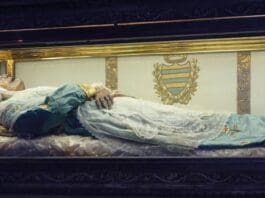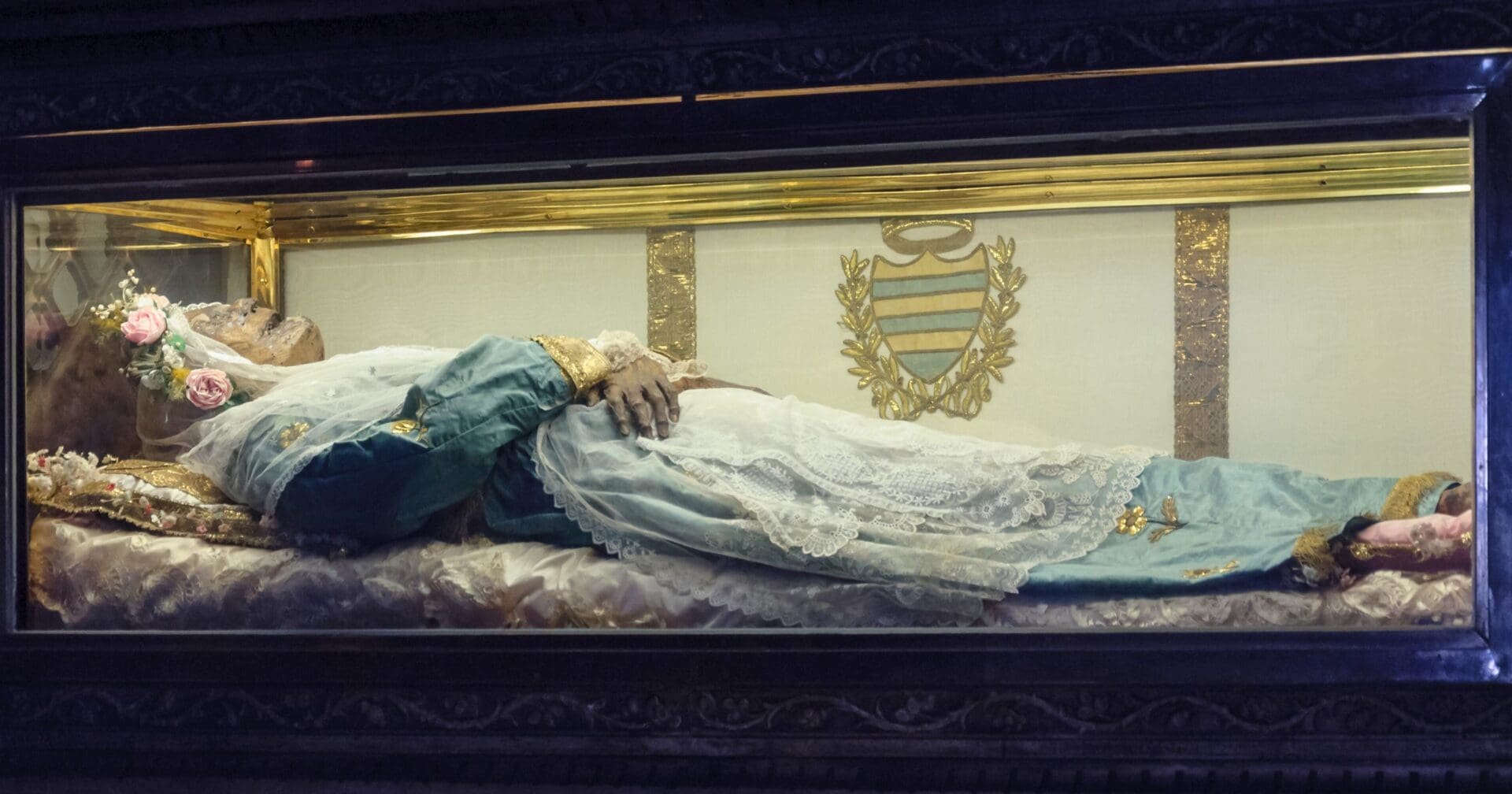
Model and heavenly patroness of domestic servants, born early in the thirteenth century of a poor family at Montsegradi, a little village near Lucca, in Tuscany; died at Lucca, 27 April, 1271.
A naturally happy disposition and the teaching of a virtuous mother, aided by Divine grace, developed in the child’s soul that sweetness and modesty of character and continual and conscientious application to work which constituted her especial virtues. At the age of twelve she entered the service of the Fatinelli family of Lucca. Her piety and the exactitude with which she discharged her domestic duties, in which she regarded herself as serving God rather than man, even supplying the deficiencies of her fellow servants, far from gaining for her their love and esteem and that of her employers rather brought upon her every manner of ill-treatment of both the former and, through their accusations, of the latter. The incessant ill-usage, however, was powerless to deprive her of her inward peace, her love of those who wronged her, and her respect for her employers. By this meek and humble self-restraint she at last succeeded in overcoming the malice of her fellow-servants and her employers, so much so that she was placed in charge of all the affairs of the house.
In her position of command over all the servants she treated all with kindness, not exacting from them any reckoning for the wrongs she had for so many years suffered from them. She was always circumspect, and only severe when there was a question of checking the introduction of vice among the servants. On the other hand, if any of them had been guilty of shortcomings, she took upon herself to excuse or defend them to their employers. Using the ample authority given her by her employers, she was generous in almsgiving, but careful to assist only those really in need. After her death numerous miracles were wrought at her intercession, so that she came to be venerated as a saint in the neighbourhood of Lucca, and the poets Fazio degli Uberti (Dittamonde, III, 6) and Dante (Inferno, XI, 38) both designate the city of Lucca simply as “Santa Zita”. The office in her honour was approved by Leo X.
Photo credit: Public Domain via Wikimedia Commons
The post Saint Zita appeared first on uCatholic.
Daily Reading
Wednesday of the Thirty-fourth Week in Ordinary Time
Reading 1 RV 15:1-4 I, John, saw in heaven another sign, great and awe-inspiring: seven angels with the seven last plagues, for through them God’s fury is accomplished. Then I…




